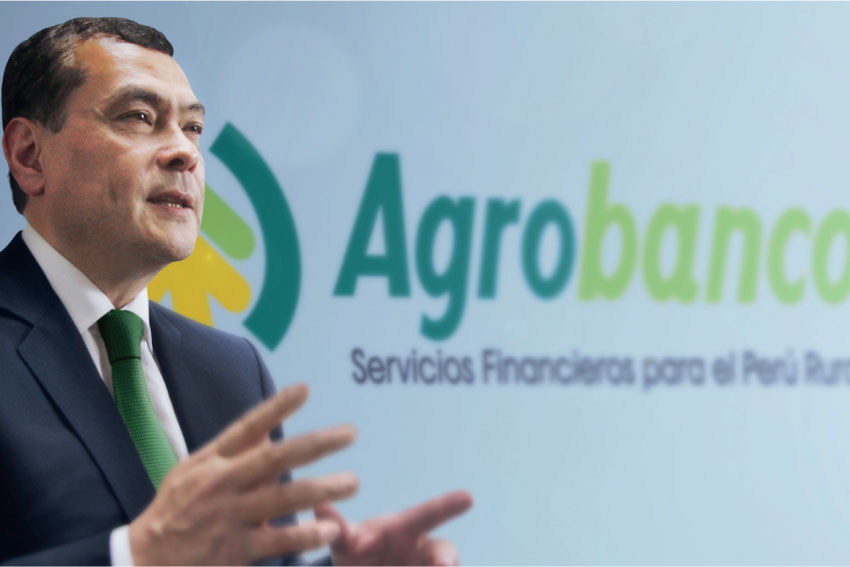Agrobanco is the only development bank in Peru and serves the vast number of unbanked farming communities that have been traditionally neglected by providing many with their first experience of financial credits

Agriculture has been a vital component in Peru’s economic growth and employment generation over the years, yet according to Agrobank, the country’s only development bank, some 86% of all farmers are outside the financial system, with 1.9 million of the country’s total 2.2 million farmers able to enter the banking system. “This sector has remarkable potential,” says Enrique Benjamín Díaz Ortega, President of the Board at Agrobanco. “We can help farmers diversify their production, with higher standards and new market opportunities, so they increase their productivity and enter the financial system.”
Agrobanco provides lowinterest loans to farmers who have previously had no involvement with the financial system. It works alongside farming cooperatives and associations, to make credit access as wide as possible, and has been awarded for creating special products that increase financial inclusion. The bank also gives credit to medium and large-scale agriculture projects that are not usually covered by commercial institutions because of lengthy production cycles, such as in the grape industry. So far, the bank has issued as many as 10,000 loans. “One of the most important things about Agrobanco is its know-how. Why are there not more private financial institutions in this sector? Because you need certain know-how that can only be acquired with time,” explains Mr. Ortega. “We know how to give credit to a small farmer, or a coffee producer in the north of the Amazonas Region; the conditions for giving credit will not be the same for everyone. We develop our risk profiles based on our own experience in each individual case; we have 600 different profiles. We have a database that is a translatable model. You can feed it with more information and it will give you a probabilistic analysis of the risks. This tool for risk assessment is something we are actually willing to share with others.”
0 COMMENTS